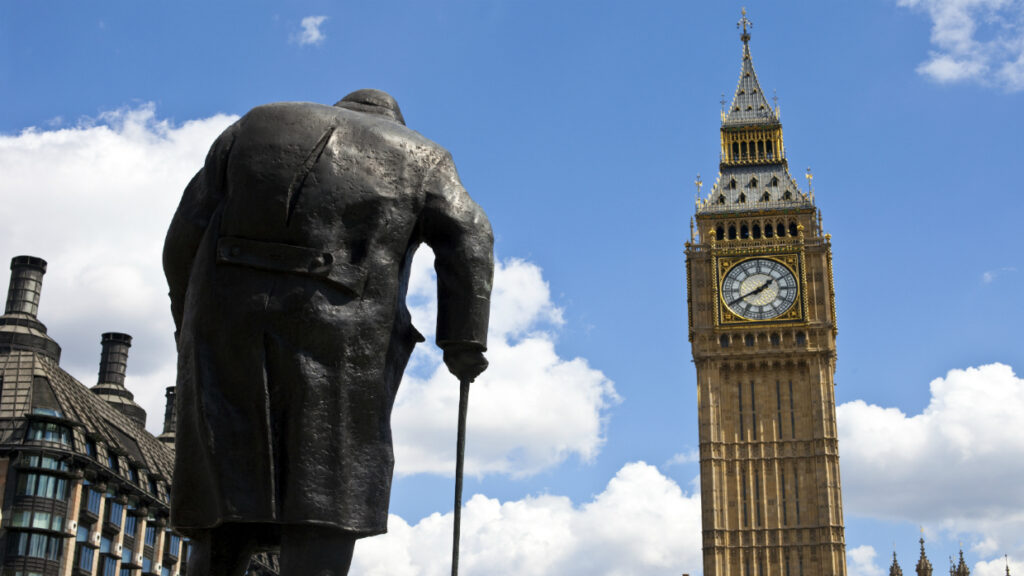On 30 November 1874, Winston Churchill was born. 141 years to the day, we look at what he can teach us about leadership.
Winston Leonard Spencer-Churchill; grandson of the Duke of Marlborough, chancellor, home secretary, first lord of the admiralty and, arguably, the most revered prime minister in British history for his efforts in leading the country during the second world war. Yet, the path that led Churchill to the position of PM was bumpy to say the least, with many trips, stumbles and critics attracted along the way. Reputedly obstinate to learning subjects that didn’t interest him at school, achieving admittance to Sandhurst on the third attempt, and, in his early political career, not averse to advocating unpopular standpoints. And so we ask, what were the skills that Churchill possessed as a leader that, at the age of 65, took this chequered past and transformed him into one of the most popular leaders of our time?
Churchill was a transformational leader, defining the process as the ability to influence others to support a larger agenda, setting aside personal concerns, and performing above and beyond the call of duty. In a speech of August 1940, Churchill said: “Death and ruin have become small things compared with the shame of defeat or failure of duty”. Further in this speech, given almost a year into the war he said: “We are the most united of the nations…we are doing the finest thing in the world. We must not grudge these years or weary as we toil”. When we consider transformational leadership as a process that appeals to higher ideals and moral values, Churchill’s aim was surely to inspire the country, at once acknowledging citizens’ struggles but urging them to press on to accomplish the goals of the many rather than the few.
As a modern day leader, this can be one of the most difficult things to achieve in a team, particularly in an individualist country such as Britain, whereby the pervading culture is one that promotes personal fulfilment over group goals. Articulating a vision is paramount, as is communicating goals tied to high performance expectations and empowering followers to achieve. Like Churchill, acknowledge that the process may not be easy ‘be it long or short, rough or smooth, we mean to reach our journey’s end’; it takes a strong leader to inspire followers to set aside ‘me’ goals in favour of group goals, but if they achieve this, their followers will be more committed, trusting, and productive as a result.
Churchill undoubtedly understood the power of the spoken and written word, its ability to motivate and inspire, and to this end produced many rousing speeches, elements of which are eternally recognisable such as his first speech as Prime Minister in May 1940: “I have nothing to offer but blood, toil, tears and sweat”. What exemplifies Churchill’s speeches to the nation comes in their direct and simple approach with personal appeal. In his broadcast of 1944, he said: “It is a year almost to the day since I spoke to you on a broadcast here at home…victory will come…there is still much to be done…I do not doubt that the task will be finished in a workmanlike fashion”. The words could work in a context of a discussion between friends and in this way draws the listener in, furthermore the lack of complexity removes ambiguity, ensuring understanding in all. As leaders today, we can learn from this by realising the importance of regularly inspiring followers, communicating clearly and directly, and by not forgetting that we have more than one audience to inspire. Just two weeks into his new role, Churchill needed to bring his cabinet on board with his plans, he did this, once again with a transformational appeal: “I am convinced that every man of you would rise up and tear me down from my place if I were for one moment to contemplate parley or surrender. If this long island story of ours is to last, let it end only when each one of us lies choking in his own blood upon the ground”.
As leaders, we will almost certainly have failures in our professional lives; handled correctly they can assist us as we become more empathetic to the struggles of others, and this along with not only self-confidence but supreme confidence in others and their abilities can combine to make a powerful, inimitable leader with esteem that endures. Churchill has been likened to a showman, an orator rather than a strategist but perhaps his strategy was the best strategy of all – that of inspiring in a time of darkness, giving hope where there was little, and motivating when morale was low. With this approach, modern leaders too will achieve their own finest hour.
Paul Russell is co-founder and director of Luxury Academy London, www.luxuryacademy.co.uk, a multi-national private training company with offices in London, Delhi and Vishakhapatnam. Luxury Academy London specialise in leadership, communication and business etiquette training for companies and private clients across a wide range of sectors.
On 30 November 1874, Winston Churchill was born. 141 years to the day, we look at what he can teach us about leadership.
Winston Leonard Spencer-Churchill; grandson of the Duke of Marlborough, chancellor, home secretary, first lord of the admiralty and, arguably, the most revered prime minister in British history for his efforts in leading the country during the second world war. Yet, the path that led Churchill to the position of PM was bumpy to say the least, with many trips, stumbles and critics attracted along the way. Reputedly obstinate to learning subjects that didn’t interest him at school, achieving admittance to Sandhurst on the third attempt, and, in his early political career, not averse to advocating unpopular standpoints. And so we ask, what were the skills that Churchill possessed as a leader that, at the age of 65, took this chequered past and transformed him into one of the most popular leaders of our time?
Churchill was a transformational leader, defining the process as the ability to influence others to support a larger agenda, setting aside personal concerns, and performing above and beyond the call of duty. In a speech of August 1940, Churchill said: “Death and ruin have become small things compared with the shame of defeat or failure of duty”. Further in this speech, given almost a year into the war he said: “We are the most united of the nations...we are doing the finest thing in the world. We must not grudge these years or weary as we toil”. When we consider transformational leadership as a process that appeals to higher ideals and moral values, Churchill’s aim was surely to inspire the country, at once acknowledging citizens’ struggles but urging them to press on to accomplish the goals of the many rather than the few.
As a modern day leader, this can be one of the most difficult things to achieve in a team, particularly in an individualist country such as Britain, whereby the pervading culture is one that promotes personal fulfilment over group goals. Articulating a vision is paramount, as is communicating goals tied to high performance expectations and empowering followers to achieve. Like Churchill, acknowledge that the process may not be easy 'be it long or short, rough or smooth, we mean to reach our journey’s end'; it takes a strong leader to inspire followers to set aside 'me' goals in favour of group goals, but if they achieve this, their followers will be more committed, trusting, and productive as a result.
Churchill undoubtedly understood the power of the spoken and written word, its ability to motivate and inspire, and to this end produced many rousing speeches, elements of which are eternally recognisable such as his first speech as Prime Minister in May 1940: “I have nothing to offer but blood, toil, tears and sweat”. What exemplifies Churchill’s speeches to the nation comes in their direct and simple approach with personal appeal. In his broadcast of 1944, he said: “It is a year almost to the day since I spoke to you on a broadcast here at home...victory will come...there is still much to be done...I do not doubt that the task will be finished in a workmanlike fashion”. The words could work in a context of a discussion between friends and in this way draws the listener in, furthermore the lack of complexity removes ambiguity, ensuring understanding in all. As leaders today, we can learn from this by realising the importance of regularly inspiring followers, communicating clearly and directly, and by not forgetting that we have more than one audience to inspire. Just two weeks into his new role, Churchill needed to bring his cabinet on board with his plans, he did this, once again with a transformational appeal: “I am convinced that every man of you would rise up and tear me down from my place if I were for one moment to contemplate parley or surrender. If this long island story of ours is to last, let it end only when each one of us lies choking in his own blood upon the ground”.
As leaders, we will almost certainly have failures in our professional lives; handled correctly they can assist us as we become more empathetic to the struggles of others, and this along with not only self-confidence but supreme confidence in others and their abilities can combine to make a powerful, inimitable leader with esteem that endures. Churchill has been likened to a showman, an orator rather than a strategist but perhaps his strategy was the best strategy of all - that of inspiring in a time of darkness, giving hope where there was little, and motivating when morale was low. With this approach, modern leaders too will achieve their own finest hour.
Paul Russell is co-founder and director of Luxury Academy London, www.luxuryacademy.co.uk, a multi-national private training company with offices in London, Delhi and Vishakhapatnam. Luxury Academy London specialise in leadership, communication and business etiquette training for companies and private clients across a wide range of sectors.





